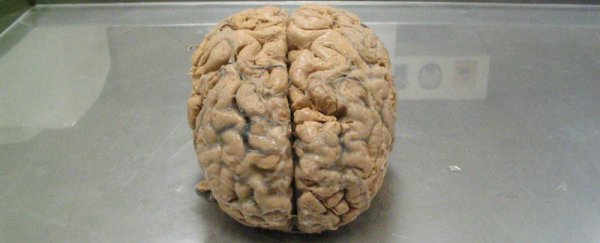Researchers from the University of Wollongong in Australia are 3D-printing their own artificial human brains in the lab, in an ambitious project that sounds like something out of science fiction.
Using human stem cells, the team is growing specific brain cell types, such as neurons, onto 3D brain-like scaffolding. The hope is that their model will allow them to properly understand the mechanics of human-specific diseases, such as schizophrenia, and also investigate potential treatments. After all, animal models can only tell us so much.
"The brain is mind-bogglingly complex, undoubtedly the most complex thing known to mankind," said Jeremy Crook, the project leader, in a press release last year, when the project was first announced.
"Unlike other tissues of the human body, obtaining functional brain tissue from patients for investigation is ordinarily not feasible," he explained.
"Therefore, we are using additive fabrication technologies, such as 3D bio-printing, to carefully control our tissue constructs from the nano, through to micro and right up to macro dimensions, deliberately organising live cells within the construct to closely mimic functional brain tissue."
The team uses what are known as biomaterials to 3D-print their scaffolding. This includes materials such as "smart" polymeric gels, which are able to not only hold cells in place, but also encapsulate them. They can also conduct electricity to help differentiate the cells into specific excitable brain cell types.
Initial research describing how the team has used electrical stimulation with conducting polymers to differentiate human stem cells into neural cells has now been published in the journal Tissue Engineering: Part C.
To better understand what is going on inside the brains of schizophrenics - a disease that's particularly hard for researchers to study in detail as it only occurs in humans - the team is now taking adult cells from patients with schizophrenia, and 'resetting' them into induced pluripotent stem cells.
These stem cells can then be used to produce all the cells of a functioning brain, and hopefully show the team what's going wrong.
The research is still in its early stages, but it's hoped in the future that the little lab-grown brains could help scientists find out more about exactly how our minds work, and also allows them to test new potential treatments without the use of animal models.
Fascinated? Find out more about the ground-breaking research happening at the University of Wollongong.
Source: University of Wollongong
